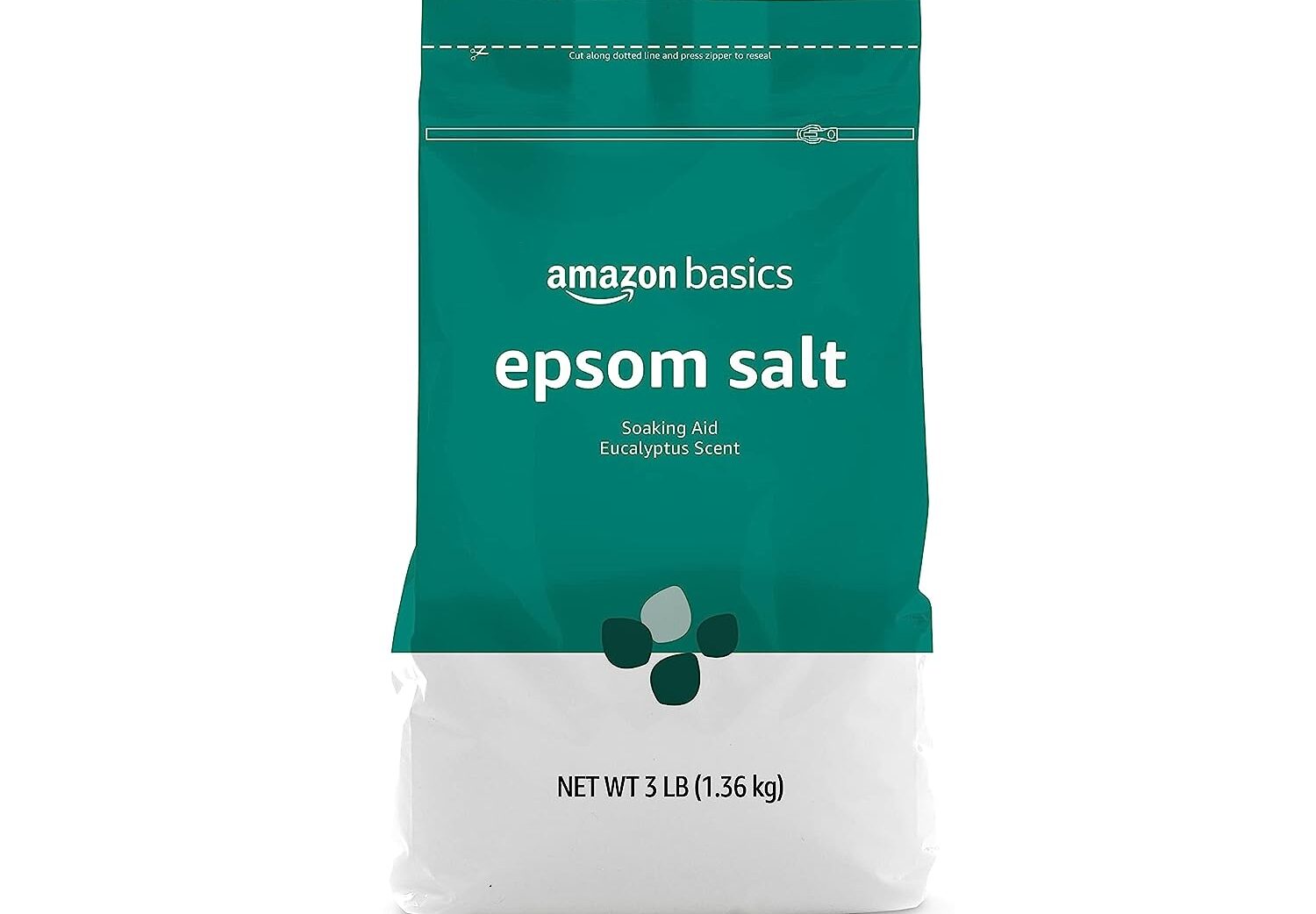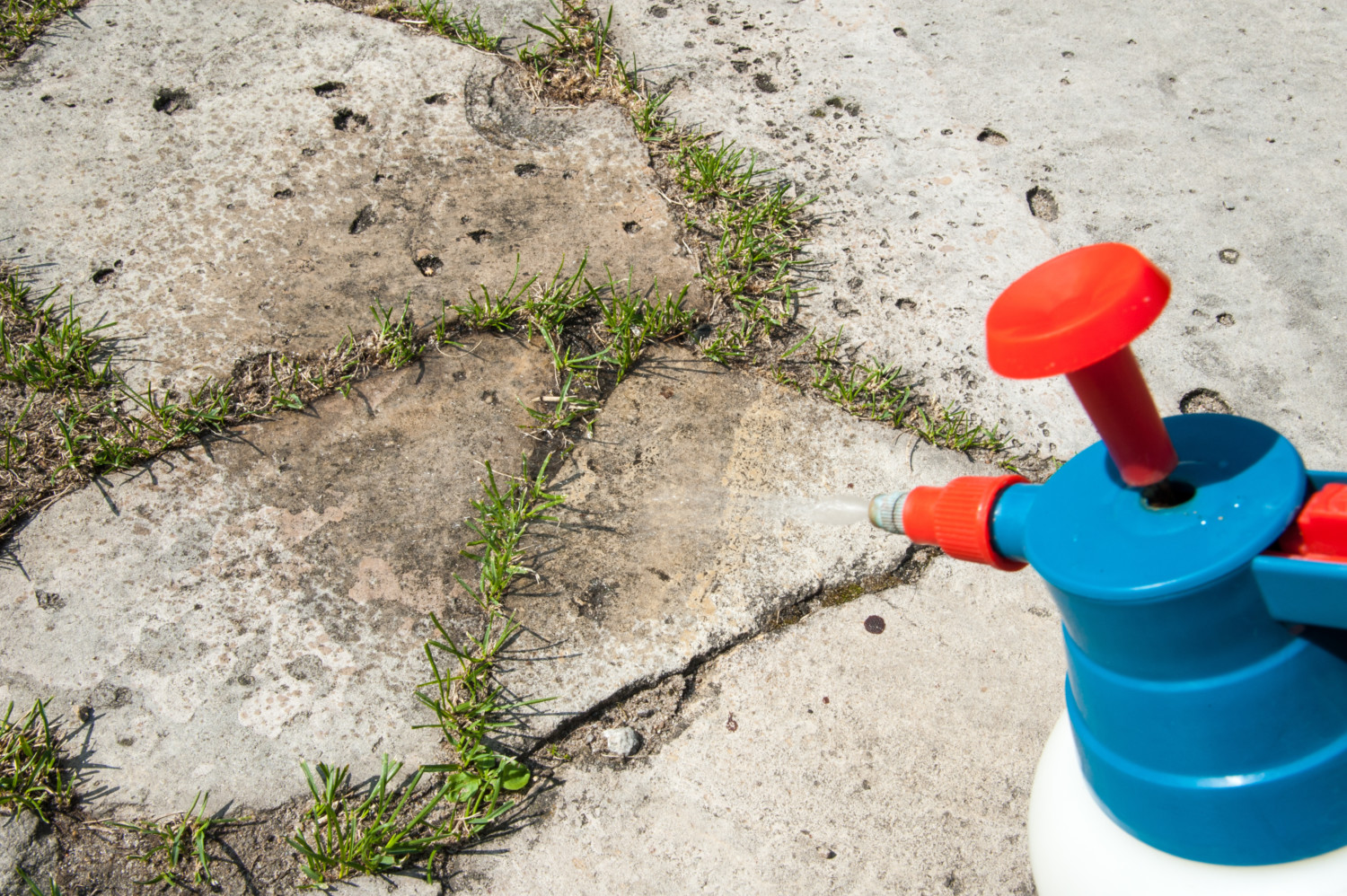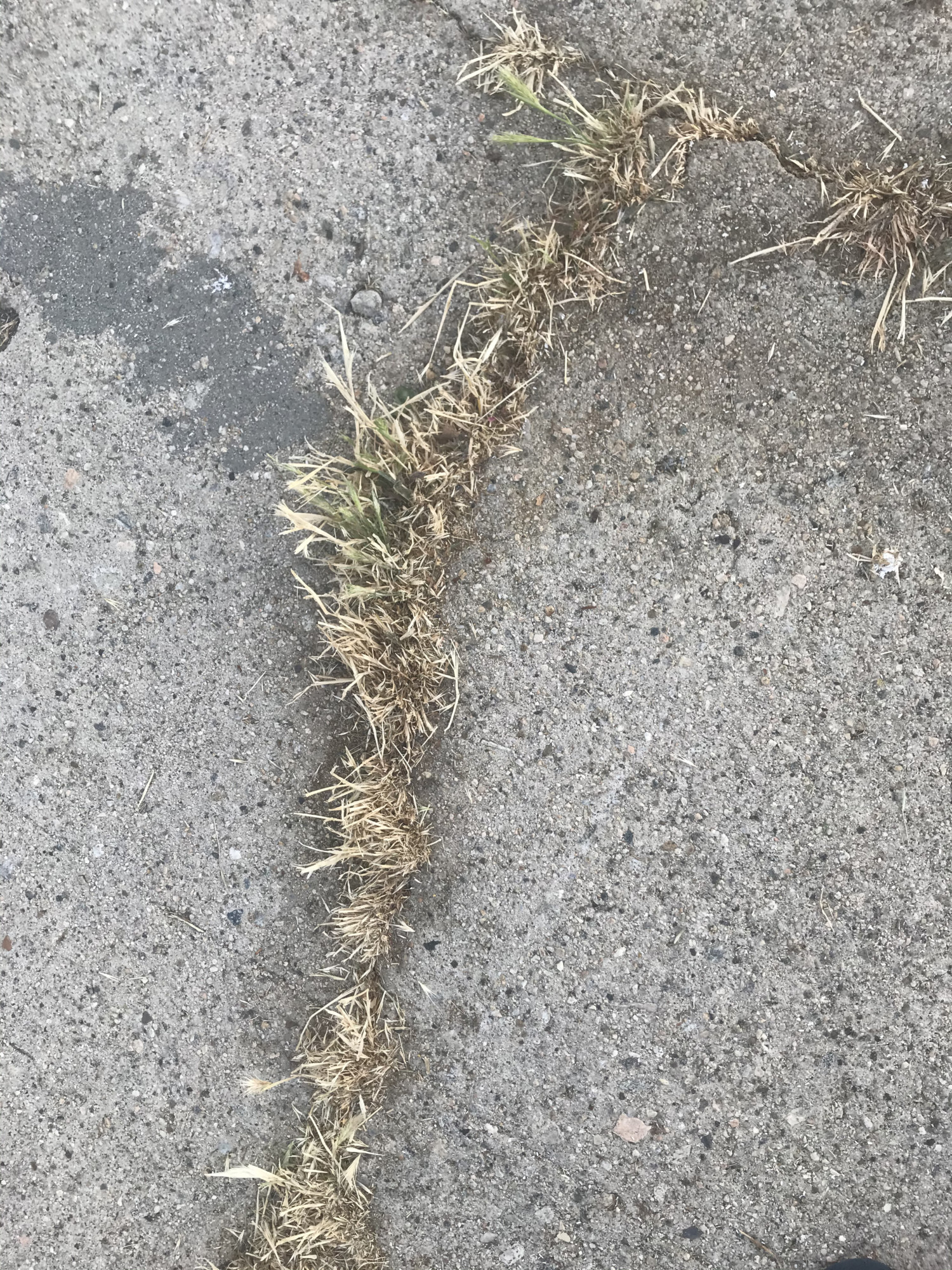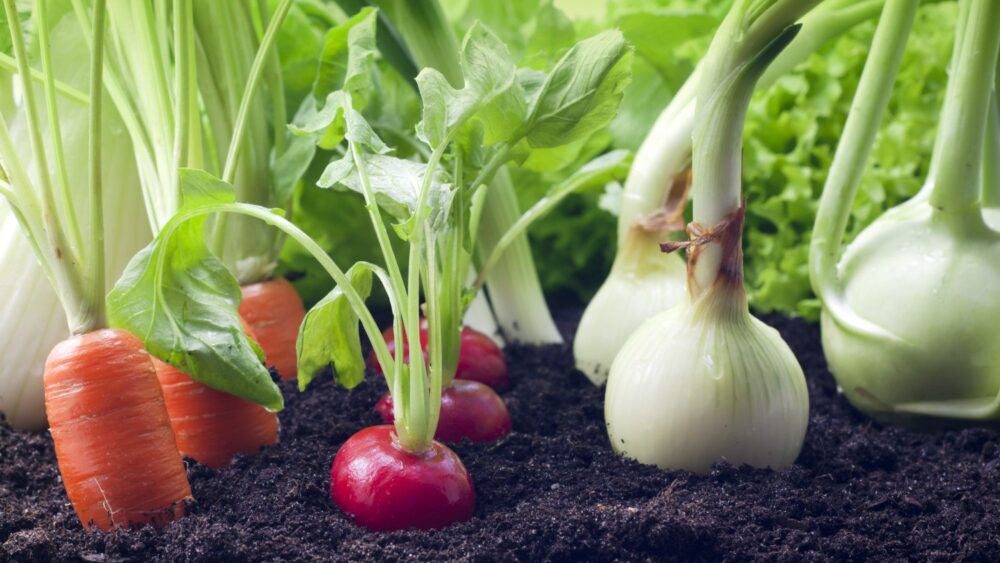Make your own DIY weed spray with stuff you already have in the kitchen
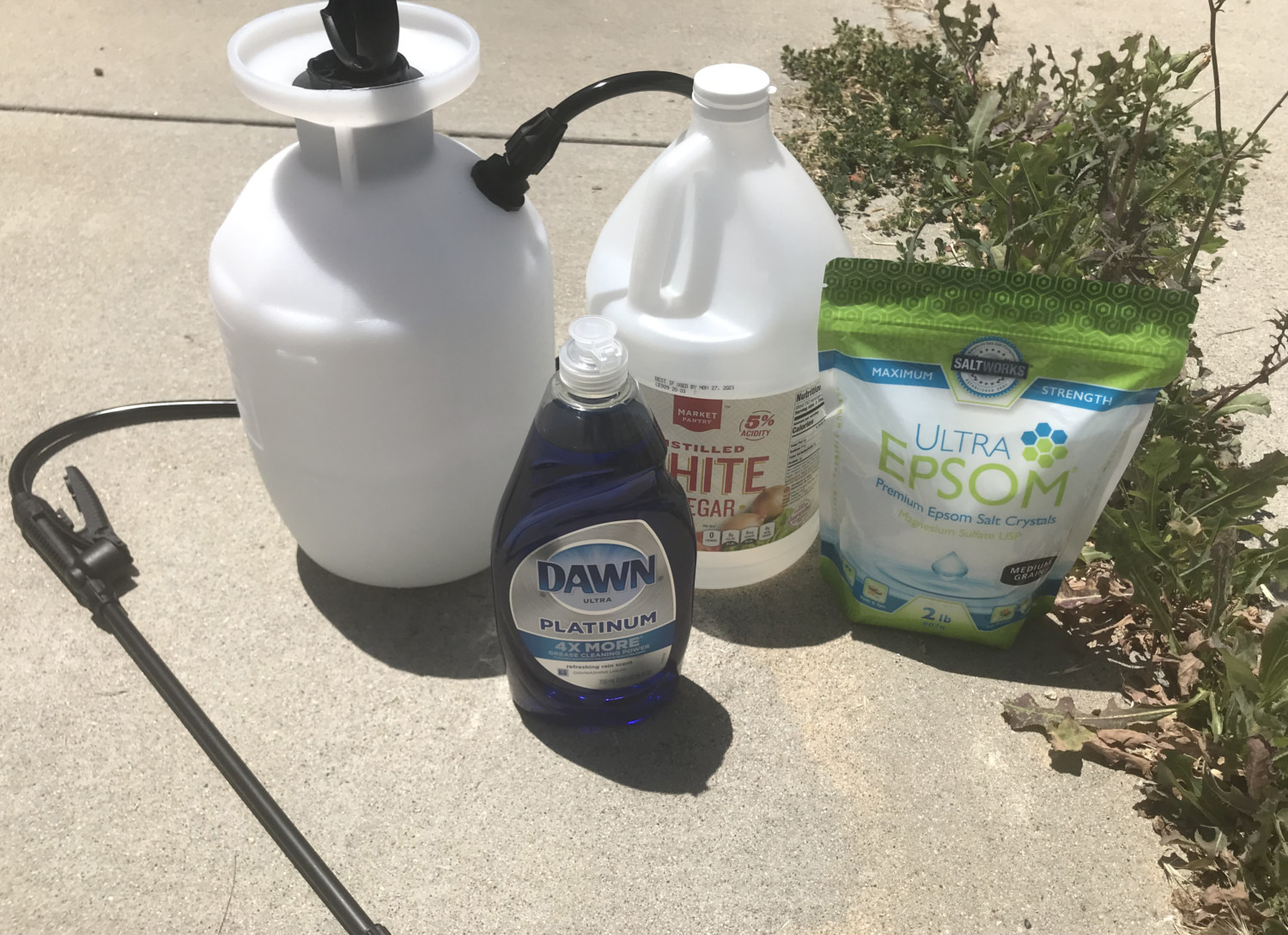
You love your garden — fresh tomatoes and fragrant roses abound this time of year — but no matter what you do, it seems the weeds keep popping back up. Conventional weed killers are usually toxic, smelly and potentially harmful to pets. And pulling weeds by can leave you with a backache for days.
So, what’s a gardener to do?
Try this all-natural weed spray that you can make from ingredients that you probably already have in your home: vinegar, dish soap and Epsom salt. You likely already have the first two items in the kitchen, but if you need Epsom salt, you can order some from Amazon for a few bucks.
How I Tested This Spray
Since I currently have a bouquet of weeds popping up in the cement cracks of my driveway, I was interested to see if spraying this non-toxic mixture would actually work.
To start, I added all of the ingredients (1 gallon of vinegar, 2 cups of Epsom salt and 1/4 cup of liquid dish soap) to a weed sprayer. Note: If you don’t own a weed sprayer, you could also reduce the recipe and mix 1/4 of the amount of each ingredient into a standard 32-ounce spray bottle.
MORE: 8 natural ways to kill and prevent weeds
Next, the instructions recommended spraying the weeds in the morning “after the dew has evaporated.” This is likely for the same reason that watering your plants early in the morning or late at night is a better idea than watering them in the middle of the day, since some of the liquid is more likely to evaporate in the bright sun of midday than at dawn or dusk.
After spraying early on a Saturday morning, I resisted the urge to stand and watch the weeds wilt, and “walked away,” per the instructions.
After a few hours, I came back and was happy to see that the weeds had turned from green to a yellowish color, giving them a straw-like appearance. Although the weed-killing spray had not magically dissolved the weeds into thin air, when I went to yank the weeds out, their roots were easy to pull.
Here’s how it looked:
So, I would rate this natural weed-killing spray as a win. Not only does it work, but, per ounce, it’s far less expensive than most commercial products you can buy to kill weeds.
And since these ingredients are non-toxic, they’re safe to use in areas of your garden or yard where pets or kids may have access.
Why This Works
Although some home hacks on the internet are questionable (like putting pepper into the washing machine), this hack works because it has science behind it.
Spraying salt onto a weed will dry it out and cause it to shrivel. Meanwhile, vinegar contains acetic acid, a natural herbicide. (Household vinegar typically contains 5% acetic acid, but you can find more concentrated versions online.) Lastly, dish soap acts as a surfactant and helps the vinegar and salt cling better to a weed’s leaves and stems, allowing more of the solution to be absorbed.
Keep in mind that if you’re planning to use this spray in a flower bed, make sure you’re very careful about where you’re pointing the spray nozzle because this solution is capable of killing any plant in its path — not just weeds.
In addition, adding a large amount of salt to a garden bed will change the soil’s composition and may make it hard for plants to grow there in the future. So, this all-natural, non-toxic spray might be best used in places where you don’t want any plants to grow, like the cracks in a driveway.
Check out these tips for how to get rid of the seven most common weeds.


